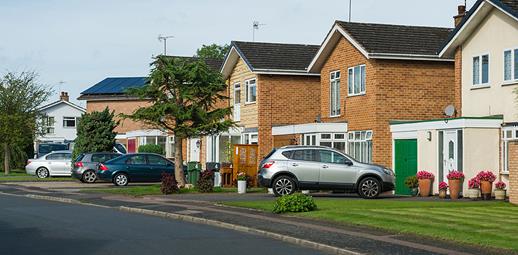
If you’re not going to use your car for a few weeks or even months, especially during the winter, then you’ll want to make sure it stays in good condition and that it’s safe to drive when you need it again.
Things like ensuring the battery doesn’t run flat and checking your tyres regularly can help make your first time back behind the wheel easier.
Here are some simple steps you can take to keep your car in good working order throughout the winter months and beyond.
Check electronics are off
Have you ever turned your car engine off, only to find out later on that you left your lights on? It’s easily done, especially if you’re in a rush or you’re distracted by your kids.
So just be sure all electronics are off, including the radio, before switching off the ignition.
Keep it covered
If you’re fortunate enough to have a garage – and you haven’t been tempted to turn it into a junk room – then this is ideal for keeping your car safe and protected from the winter weather while it’s not in use.
If you’re going to leave your car outdoors, on a driveway or parked on the street, it might be worth buying a weatherproof and secure car cover to keep your car clean, dry and hidden from prying eyes.
Before leaving your car under wraps, check the windows are fully closed and do what you can to keep away animals like rats or mice that might try and make their home in your vehicle. Auto Express recommends stuffing clean rags into the exhaust pipe and any other areas animals could nest[1]. Before driving again, make sure you look under the bonnet to see if any wires or belts have been chewed on.
Clean it up
Don't put your car away while it’s wet or grimy. It’s worth giving it a clean first. Things like old bird droppings left on cars can lead to paint damage. You could also give it a wax for a bit of extra protection.
Also, give the interior a clean if it’s going to be left for a long time. It’s amazing what germs can accumulate in cars – you certainly don’t want to leave them to fester for months on end.
Start it when you can
Your biggest concern may be the battery running flat, especially in cold weather. The AA says that most modern cars with a fairly healthy battery should last at least two weeks before needing to be started up[2].
When you start your car, allow the engine to run for 15 minutes to re-charge the battery and help keep the engine in good condition. If your battery is a little older, you should probably do this more often, perhaps once a week. When keeping your car running, make sure you do it in a well-ventilated space, as exhaust fumes in a closed garage can be dangerous.
Alternatively, you could use a smart charger to keep the battery topped up.
Top up on fuel
Keep your car topped up with fuel, even if it’s not going anywhere for a long time. It’ll be ready to go when you need it and this will prevent moisture from accumulating inside the fuel tank.
Other fluids need considering too, if your car is to be unused for a while: check your oil level and change it if necessary (all the information you need to do this should be in your car manual), and lubricate your car door locks and boot hinge to ensure they keep working smoothly.
Look after your tyres
Cars left unused for weeks or months can get flat spots, when the weight of the vehicle sitting on one spot flattens out part of the tyre[3].
The good news is that these flat spots normally disappear after a bit of driving around - although the car may feel unusually jittery at first.
To prevent flat spots, Continental Tyres recommends increasing your tyre pressure by 3 psi before leaving your vehicle unused[4].
Keep it safe from thieves
Don’t forget about security. Before giving your vehicle a long holiday – preferably in the garage – check you haven’t left anything that might tempt opportunistic thieves; that includes anything from a satnav to sunglasses.
Also, ensure your alarm or immobiliser is enabled when you leave your car, by checking for the flashing light on your dashboard. If you don’t have an immobiliser, you may want to consider buying an alarm or a trusted classic - a steering wheel lock.
Keep your car insured
By law, your car needs to be insured if you leave it parked on the street, on your driveway or even in your garage[5]. The exception is if you’re storing your car off the road and decide you’re not going to drive it at all, in which case you’ll need to get a Statutory Off-Road Notice, also known as SORN.
Get your car serviced
Cold weather can be tough on cars. So, as well as doing your own regular maintenance, be sure not to miss your car’s annual service.
Also, you’ll still need to have your car’s MOT done, as usual.
Taking care of your car while you’re not using it can go a long way in ensuring that you’ll be able to drive safely and carefree once you’re back on the road.
For tips on how to stay happy and safe in your home, go to Solved.
[1] https://www.autoexpress.co.uk/car-news/97649/how-to-store-your-car
[2] https://www.theaa.com/driving-advice/laying-up
[3] https://www.edmunds.com/car-safety/car-maintenance-and-repair-during-covid-19.html
[4] https://www.continental-tyres.co.uk/car/all-about-tyres/tyre-damages/flat-spotting
[5] https://www.citizensadvice.org.uk/consumer/insurance/insurance/types-of-insurance/vehicle-insurance/when-you-don-t-need-vehicle-insurance
